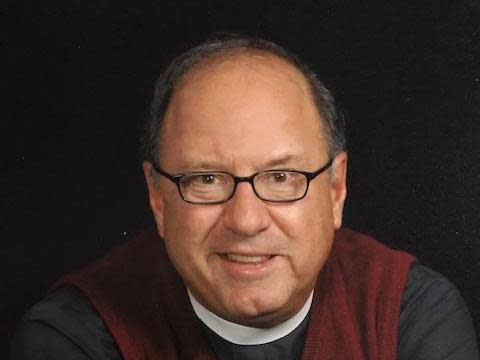Henry Idema: Why religion endangers our democracy
In light of the 248 mass shootings — and counting — we have already witnessed this year, the question that seems to be on so many minds is why America is so broken both spiritually and morally. We have had mass murders in other years and in other decades, but this carnage is unique in our bloody history.
There are many reasons for our brokenness: the inability of Congress to pass any meaningful laws to protect us from men with guns; the poison of the Internet and TV when it spews out lies and hatred; wealth inequality; inflation; loneliness; mental illness; high gas prices; homes fractured by violence and absent parents; unfunded schools offering poor education; drug abuse; racism and fear of "the other," and on and on.

All of that, in my view, can be boiled down to this: Our polarization in both religion and politics, and the connection between those two polarizations. The connecting point is the loss of the center in both politics and religion. In the GOP if you advocate, for example, a ban on semi-automatic weapons or even raising the age from 18 to 21 to purchase one of these rifles, you will be hounded out of the party, as we just saw with Congressman Chris Jacobs. Democrats can barely tolerate anyone running for office who is "pro life" on abortion. Where is the center in our political system?
I remember reading in college during the Vietnam War the poem, "The Second Coming" by William Butler Yeats, published in 1919 in the aftermath of World War I, which has haunted me down through the years.
These verses I find particularly relevant to what we are going through.
"Things fall apart; the center cannot hold
Mere anarchy is loosed upon the world
The blood-dimmed tide is loosed, and everywhere;
The ceremony of innocence is drowned
The best lack all conviction, while the worst
Are full of passionate intensity."
If those lines of poetry don't give you chills down your spine, I do not know what will.
But the concluding line of the poem is especially horrifying, and prophetic: "And what rough beast, its hour come at last,/Slouches toward Bethlehem to be born?"
Yeats prophesized that a monster was coming, a "rough beast" who, in my understanding of the poem, is both political and religious — an anti-Christ figure who will use both the political system and religion to attain and maintain power. Hitler did that by constantly talking about Providence giving him a mission in the world, while crushing the church and then forcing what was left of the church to support him. Stalin was educated in a seminary but then turned against the church. Putin has the support for his war of the Russian Orthodox Church and its most powerful clergy.
My fear is that, in our current spiritual state where the center is gone, someone from one of our polarities will take power.one way or another. This "rough beast," to use Yeats' term, could be from the left as with Stalin, or someone from the right, like Putin or Hitler. Such a leader, if I am correct, will emerge by promising to solve our problems, such as crime, gas prices, and inflation, and use religion to gain power. Donald Trump received 80 percent of white evangelical votes, which gave him the election in 2016. That victory and how it was attained is only, I fear, a dress rehearsal for what may lie in our future. Jan. 6 gives us a glimpse of the danger Yeats saw in 1919.
The right in both religion and politics is extremely organized, putting plans in place right now state by state to control state houses, courts and elections. I do not know if a left any longer exists in religion. The Mainline churches, which are declining, have at their best tried to maintain the center Yeats said was missing. The Mainline churches certainly have strength in some individual churches throughout America, but there is no single voice, or even an influential voice, compared to the Religious Right, which now controls the Supreme Court where the majority of the judges are conservative Roman Catholics.
The monster that Yeats feared was coming, did come, and I fear may come again, a beast who uses religion to gain power, and uses religion to maintain his or her power.
Both religion and politics must once again find a center in which to co-exist with tolerance for one another and a sense of compassion, or as in Goya's famous painting, "Saturn Devouring His Children" (1820-23), our gods of money, religion, and political power, will continue to devour our children.
— Henry Idema lives in Grand Haven. He can be reached at henryidema3@yahoo.com.
This article originally appeared on The Holland Sentinel: Henry Idema: Why religion endangers our democracy
